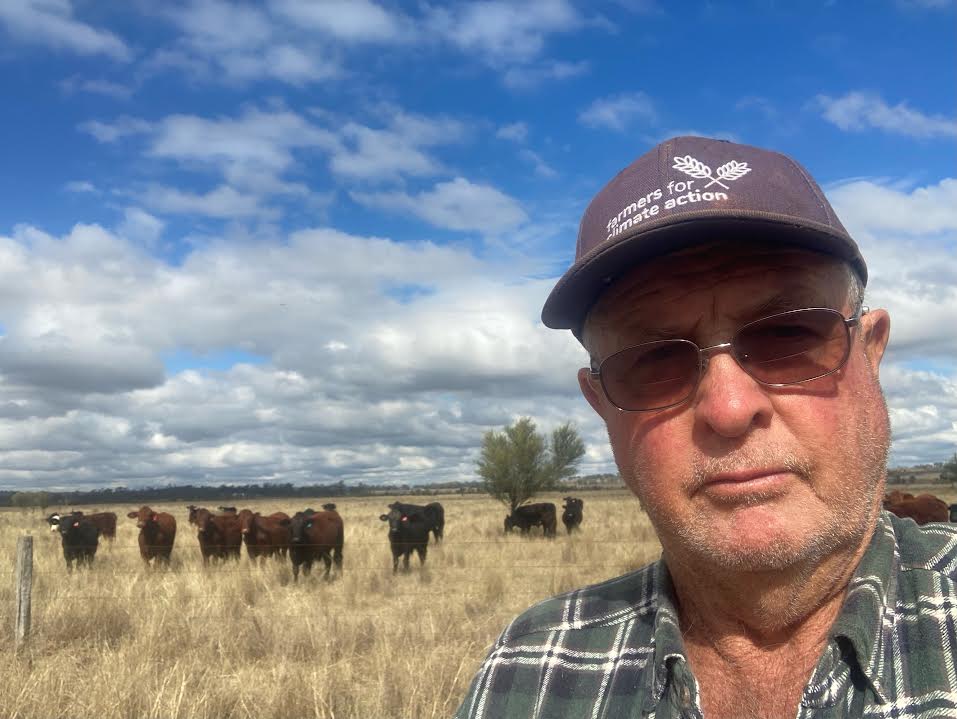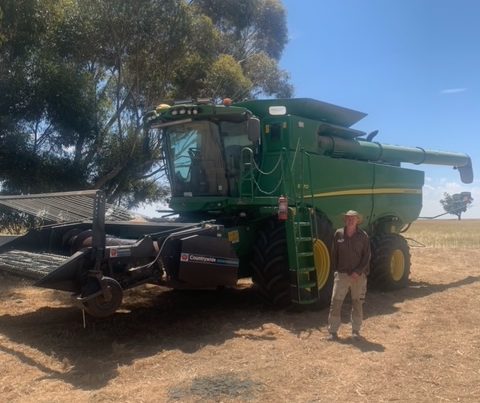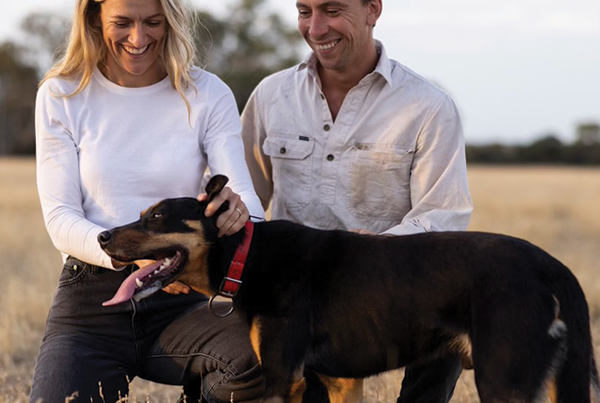At a glance
Who: Sid Plant
What: 3000 acres, beef cattle
Where: Beginning of Murray-Darling Flood Plain, near Toowoomba
Can you tell us about your property?
My family has been farming in the area since the mid-1800s and have always been involved in beef enterprise. We no longer breed, and instead buy calves and grow them.

What first got you thinking about climate change?
I got involved with climate science when I studied meteorology for my pilots license in 1966. Australia has the highest year to year rainfall variability and so, weather and climate is important in almost all the decisions that farmers make. I saw the opportunity if I could develop my understanding of the science to get an advantage in the agricultural marketplace. When farmers were selling cattle cheaply because of dry seasons, I tried to be positioned to be able to buy them and likewise, if I could see a chance of the season improving, I like to be in a position to sell.
In 1974, companies in coal and gas in the US realised their contribution to global warming but decided to keep it quiet. They used disinformation to avoid accountability, and they still do so today. Around that time, Scientists developed an understanding of the Walker circulation. This explained the phenomenon of El Ninos and La Ninas. This is a significant driver of seasonal climate for Australia.
Following on from that, I just kept studying and have never stopped studying climate and climate change.
I was also interested in the Vostok Ice Core research, which now has over a million years of data. It really shows how the climate has started to change around the beginning of the industrial revolution. In the period since the 1950s, carbon dioxide has increased from just over 200 parts per million to more than 400 parts per million.
Since then, I have been to conferences and presented with the UN, and am still a climate activist. . I am a foundation member of FCA. The growth in members challenges the stereotypes about farmers and demonstrates that many want climate action. Because of our highly variable climate, the UN sees Australian farmers as being the best at adapting to climate change. While we are adapting as well as we can, that’s not going to be enough to cope and the world community still has to deal with greenhouse gases urgently.
What are some of the strategies you’ve been employing to build resilience and how successful have they been?
Our management has changed significantly in the last 20 years and continues to do so. This means having cattle in one mob and moving them from paddock to paddock ‘Cell Grazing”. The climate also influences what crops to plant and when to plant them.
If farmers are going to continue to feed the world, we will have major decisions to make in terms of coping with climate change and getting control of greenhouse gases.
If you could send a message about climate change to the Federal Government, what would it be?
Read a book called ‘Electrify’. It is a roadmap on how to respond to the current situation on climate and save the planet.






